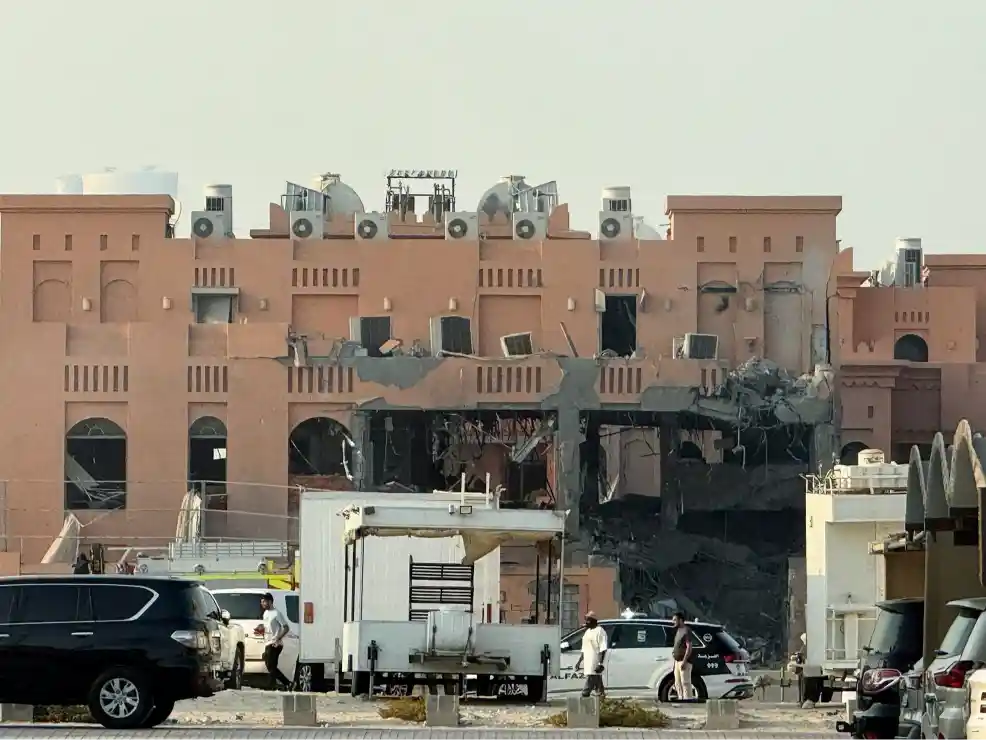The Israeli strike on Qatar has sent shockwaves across diplomatic circles, raising doubts over fragile ceasefire negotiations. The New York-based Soufan Center called the attack a move with “profound strategic implications,” warning that it risks undermining the Abraham Accords and deterring future mediators. Qatar, known for its neutrality and peacemaking role, has questioned whether its involvement in talks is now being punished.

Trump Distances Himself
Former US President Donald Trump, who had earlier framed the latest ceasefire proposal as a “last warning” to Hamas, said he was “not thrilled” about the attack. He stressed the US was informed but not responsible for the strike, calling it an “unfortunate incident” that undermines efforts to free hostages and restore peace. Trump promised a full statement, while acknowledging that the way the strike was carried out damaged trust.
Moscow’s Strong Condemnation
Russia denounced the attack as a “gross violation of international law” and an assault on Qatari sovereignty. The Foreign Ministry said the move would only escalate tensions in the Middle East. Moscow described the strike as an act deserving the “strongest condemnation,” despite its own controversial actions in Ukraine.
Israeli Justification and Qatari Anger
Israel’s military claimed it used precision weapons and advanced intelligence but offered no details. Qatar’s Prime Minister Sheikh Mohammed bin Abdulrahman al Thani accused Israel of using weapons undetected by radar, suggesting stand-off missiles were launched from outside Qatari airspace. He criticised the US for only sending a warning message after the strikes had already begun.
Wider International Reactions
Governments across the globe condemned the move. Japan called the strike a “hindrance to diplomatic efforts,” while the UK’s Prime Minister Keir Starmer described it as a “flagrant violation of sovereignty.” Egypt, another key mediator, said the attack deliberately targeted leaders working on a ceasefire deal.
Rising Doubts on Ceasefire Talks
Ceasefire negotiations, already fragile, now appear deeply uncertain. Hamas had dismissed the US-backed proposal as a “humiliating surrender document” but was still considering it. Following the strike, Qatar’s leadership said there was now “nothing valid” in the talks, though it stopped short of abandoning mediation altogether. The Hostages and Missing Families Forum in Israel warned that the attack endangered any chance of bringing captives home.
India’s Response
India issued a carefully worded statement through the Ministry of External Affairs (MEA), expressing “deep concern” over the strikes in Doha. New Delhi urged restraint and diplomacy, highlighting the risks to regional stability and security. India’s response reflects its longstanding support for dialogue-based conflict resolution, while balancing ties with both Israel and Qatar.
What Lies Ahead
The attack on Qatar has opened up a new front of uncertainty in the Gaza war. It has strained Israel’s relations with Gulf states, raised questions about the role of mediators, and deepened international divides. With tensions rising, the immediate future of ceasefire talks and regional stability looks increasingly fragile.
